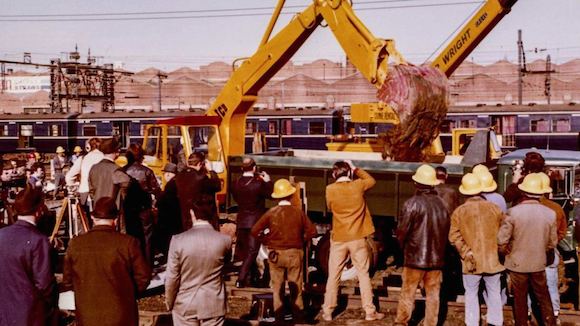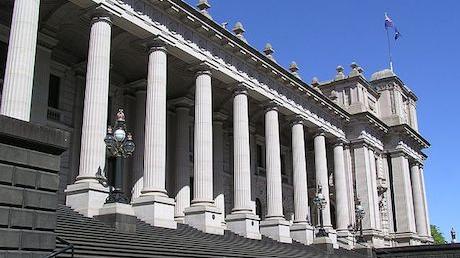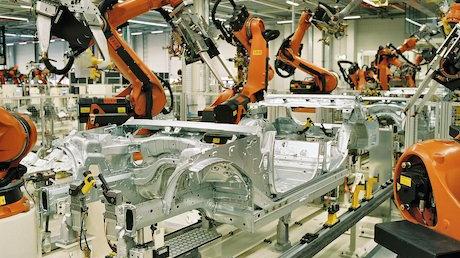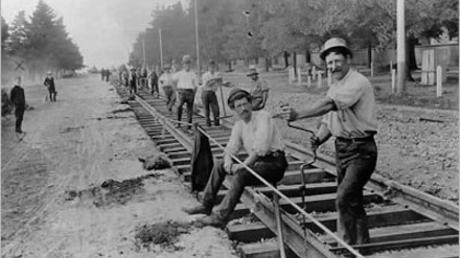
Melbourne is rightly proud of its world-beating quality of life. How a town at the far end of the antipodes rose to be ranked as the world's most liveable city, four years in a row, is a study in good planning and good government. More specifically, it has been achieved through significant investment in infrastructure over decades.
But sadly, that is a lesson Victoria's leaders seem to have forgotten, particularly when it comes to the transport system. Considered proposals, proper deliberation and appropriate investment has been replaced by pipedreams, political bickering and underinvestment.
If the State Government and Parliament do not get their act together in the next term then the city's reputation is at serious risk. Because there is an incontrovertible reality that policymakers still do not seem to comprehend: Melbourne's population has grown by a staggering 25 per cent (or 900,000) since 2000 to 4.35 million – and it is a trend that is set to continue.
Infrastructure decisions are a political football. Both the Liberal and Labor parties have had more positions than the Kama Sutra on major projects.
Everywhere you look, the city's transport system is struggling to cope. With a state election looming on 29 November, there are two key reforms that voters should demand to help get Melbourne back on track.
Firstly, an increase in state borrowing and funding to build infrastructure.
One of the most damaging ideas that has taken root in Victorian governments in recent times is the notion that infrastructure should be funded almost entirely from the budget. Low debt and low investment in infrastructure may have been the right policy in the 1990s, when interest rates were high and population growth low. But two decades on, neither of these conditions holds true any more, making the continued aversion to state borrowing irrational and harmful to Melbourne's future.
Henry Bolte used state debt to build more infrastructure in Victoria than any other state leader – during his 17 years as premier, debt as a percentage of the state economy reached as high as 58 per cent.
Bolte understood that future generations would benefit most from his state building and should therefore share some of the cost in the form of future interest payments. He also knew that as long as the state invested in high-return projects, the government's finances would be better off in the long run and the baby boomers and waves of new immigrants would enjoy an unrivalled quality of life.
The Napthine government's most recent "record" infrastructure budget was a step in the right direction, but still forecasts Victoria's gross public debt to fall from just 6.3 to 4.5 per cent of gross state product over the next four years. If Bolte had adopted this low-debt approach, Victorians might still be catching a punt across the lower Yarra River to Spotswood or getting international flights from Essendon Airport.
The good news is that there has never been a better time to make a policy shift. From 1969 until 2013, the cost of borrowing for the Australian government on 10-year bonds averaged 7.9 per cent. The Victorian Government's current borrowing rate is at a historically low 3.66 per cent.
To help bring a new level of transparency to government borrowing, the state could issue Victorian Infrastructure Bonds. These bonds would offer a low but safe return for "mum and dad" investors.
The government should also consider other forms of revenue such as transport-linked levies, tolls or surcharges that are hypothecated for transport purposes. Treasury hates hypothecation but as Medicare, the National Disability Insurance Scheme and flood levies show, the public accepts them provided they contribute to worthwhile objectives.
The second key reform voters should demand is an infrastructure decision-making system that can endure beyond the political cycle.
For most of its modern history Victoria has had an infrastructure pipeline that successive governments got on with, delivering in a mostly logical sequence.
That system has broken down badly, and now infrastructure decisions are a political football. Both the Liberal and Labor parties have had more positions than the Kama Sutra on key projects such as East West Link; rail lines to Doncaster, Rowville and Melbourne and Avalon Airports; the Melbourne Metro or Melbourne Rail Link projects; and the Port of Hastings development.
The policy shifts cannot be explained by changing circumstances or new evidence; they are mostly the result of political tactics and short-sighted opportunism. Victoria cannot afford to have its politicians playing this fast and loose when such vast sums of public money are involved.
The most sensible policy fix is to establish an independent expert advisory body that would assess major project proposals and release public reports about their benefits and cost. Infrastructure Australia and more recently Infrastructure NSW provide two such models, as does Labor's proposed Infrastructure Victoria.
A body like Infrastructure Victoria would help stop governments making dumb decisions and encourage a return to a more long-term, bipartisan approach to investment in capital projects with a high rate of return.
Where is the evidence for the Napthine government's decision to scrap the long-planned Melbourne Metro and replace it with Melbourne Rail Link, or the prioritising of East West Link over other road projects? Where is the evidence to support Labor's proposed investment in eliminating level crossings, or its preference for a new port for Melbourne in Bay West instead of Hastings?
Finally, if all else fails, there is the option of "Fortress Victoria" – where the government moves to stop or significantly slow Melbourne's population growth. But this is far from the simple solution some believe: it would be very hard to achieve and it would almost certainly send the state into deep recession.
So for the politician who wants to save the world's most liveable city and build a bigger and better Melbourne, the path ahead is narrow but clear – and the 2014 state election is your time.
This article was first published in The Age today, 20 October: Link here
Nicholas Reece is a principal fellow at Melbourne University, director of ElectionWatch.edu.au and a former Labor adviser.




